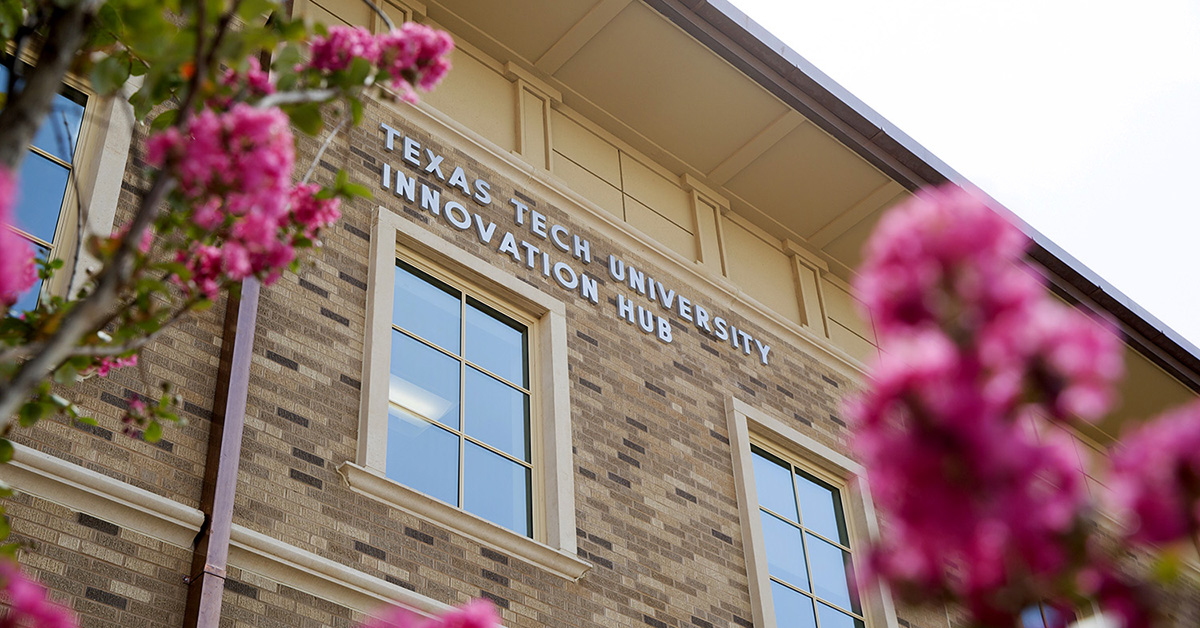New TTUHSC Program Seeks to Inspire Research Innovation, Collaboration

The new Innovation Bridge Grant Program, a collaborative effort between Texas Tech University Health Sciences Center (TTUHSC) and the Texas Tech University (TTU) Innovation Hub, seeks to develop and support organized pathways for TTUHSC students and faculty members to test and build their ideas and innovations.
Beginning in January 2022, the program will fund five faculty innovators with $10,000 ($50,000 total) seed funding to produce preliminary data suited to accompany federal innovation grant applications. Faculty receiving the grants will be required to participate in selected TTU Innovation Hub programs that will serve as program milestones. Later in spring 2022, grant funding will then provide $3,000 ($15,000 total) to each of the five student Sling Health teams. The students will use the financial support to bridge their innovations over to the TTU Innovation Hub for further development.

To fund the Innovation Bridge Grant Program, Endowed Professor in Pain Science and Associate Vice President for Research for TTUHSC’s School of Health Professions Phil Sizer, P.T., Ph.D., TTUHSC School of Medicine Professor Jennifer Phy, D.O., and Associate Vice President for Innovation and Entrepreneurship at the TTU Innovation Hub Kimberly Gramm spearheaded a successful effort to acquire grant funding from The CH Foundation.
Founded in 2013 by medical students at Washington University in St. Louis, Sling Health is a national non-profit organization run by students who initially sought to confront a multitude of unsolved clinical issues they encountered within hospitals. The TTUHSC Sling Health chapter was founded in 2018 to help students feel less anxious about translating their ideas. Sling Health introduces them to three steps of innovation: ideation, commercialization and acceleration.
“This Sling Health chapter acts as a pre-incubator for future medical entrepreneurs and inventors in the health care space. The program brings together aspiring innovators from the health sciences, business and engineering to address issues and solve problems experienced today by health care professionals,” said Sizer. “The Innovation Bridge Grant Program is designed for these students.”
For the STEM student, moving their innovations to the TTU Innovation Hub is the next step in their entrepreneurial journey. However, TTUHSC students are not typically as experienced with the entrepreneurial process, said Sizer, who also serves as faculty sponsor for the School of Medicine’s Sling Health student organization chapter. They are not familiar with inventions, patents and business plans, he said.
“The whole experience is very intense,” Sizer continued. “The Sling Health chapter reduces the TTUHSC student’s angst over this and introduces them lets to the process.”

Phy is collaborating with Sizer to establish the Innovation Bridge Grant program. She previously worked with the TTU Innovation Hub to successfully develop an evidence-based diet plan for women living with polycystic ovary syndrome. She said getting new medical devices, pharmaceuticals, software and other inventions to the public is complicated, expensive and time-consuming.
“We do research hoping that our discoveries will help someday, but if our discoveries never reach the person who needs them, I am not sure why we do research,” Phy said. “In the business world, there is a common term called the valley of death where a new business struggles between having a great idea and making the idea a reality. The Innovation Bridge Grant Program will bridge that gap, giving researchers the support, funding and mentoring they need to take ideas and cutting-edge research findings to the next level as quickly as possible.”
During the ideation step, students make a brief presentation about their idea and take part in a pitch contest. Once they have defined and solidified their idea, they may enter the commercialization step. During commercialization, they discover who makes up their target customer(s) base while validating their value proposition and target market.
The final step, acceleration, involves identifying investors and creating an organization. From there, the student and faculty teams either build and launch a company or exit the process so TTU can license their innovation for further development and sales.
Sling Health student teams entering the program will have completed several different milestones toward organizing their ideas. Then they will enter programs such as the Innovation Hub’s annual I-Launch competition or the National Science Foundation Regional I-Corps program, which provide guidance and tips on commercialization, how to start a business and how to work through requirements and issues related to certain industries.
For more information about the Innovation Bridge Grant Program, email Sizer or Carleigh Smith.
Related Stories
Celebrating Veterans: TTUHSC’s General Martin Clay’s Legacy of Service and Leadership
From his initial enlistment in the Army National Guard 36 years ago to his leadership in military and civilian health care management roles, Major General Martin Clay’s career has been shaped by adaptability, mission focus and service to others.
Texas Tech University Health Sciences Center School of Nursing Named Best Accelerated Bachelor of Science in Nursing Program in Texas
The TTUHSC School of Nursing Accelerated Bachelor of Science in Nursing (BSN) program has been ranked the No. 1 accelerated nursing program in Texas by RegisteredNursing.org.
TTUHSC Names New Regional Dean for the School of Nursing
Louise Rice, DNP, RN, has been named regional dean of the TTUHSC School of Nursing on the Amarillo campus.
Recent Stories
National Academy of Inventors Names TTUHSC Faculty Senior Members
The National Academy of Inventors (NAI) has designated two current and one former TTUHSC faculty researchers as Senior Members.
The John Wayne Cancer Foundation Surgical Oncology Fellowship Program at Texas Tech University Health Sciences Center Announced
TTUHSC is collaborating with the John Wayne Cancer Foundation and has established the Big Cure Endowment, which supports the university’s efforts to reduce cancer incidence and increase survivability of people in rural and underserved areas.
TTUHSC Receives $1 Million Gift from Amarillo National Bank to Expand and Enhance Pediatric Care in the Panhandle
TTUHSC School of Medicine leaders accepted a $1 million philanthropic gift from Amarillo National Bank on Tuesday (Feb. 10), marking a transformational investment in pediatric care for the Texas Panhandle.
